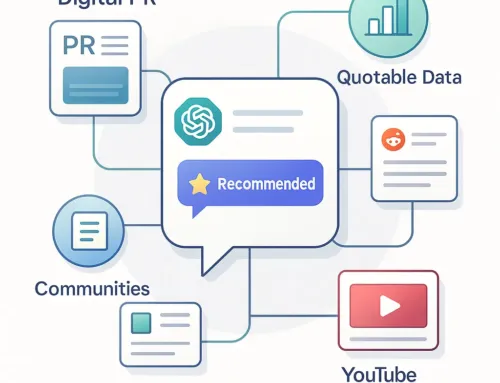
Approx. read time: 5.5 min.
Post: WordPress, SEO, and Social Media Marketing
WordPress, SEO, and Social Media Marketing: Maximizing Online Presence
In today’s hyper-connected digital world, where social media, blogs, and platforms like Twitter and Facebook dominate, the tools you use online can significantly impact your business success. How you engage on blogs and social networks can make or break your ability to land jobs, secure new clients, or drive traffic to your website.
Despite the constant chatter about the importance of retweets and linkbacks, recent research shows that these actions often fail to translate into meaningful engagement. Surprisingly, many users don’t click on shared content, even from influential figures.
While having authority and trust can boost shares, the challenge lies in sustaining engagement without continuous effort. Publicists and marketers often focus on broad strategies to reach a wide audience, but the key to long-term success is building a community around your ideas, business, or startup. This community-driven approach helps maintain consistent traffic and brand buzz.
Overcoming Blogger Marketing Challenges with WordPress
WordPress provides an array of tools—both core features and plugins—that can help bloggers effectively promote their content. Whether you are new to blogging or an experienced content creator, leveraging these tools can enhance your marketing efforts and boost visibility.
Understanding the Basics of SEO
Search Engine Optimization (SEO) is the art of improving the visibility of your web pages in search engine results. The ultimate goal of SEO is to secure a front-page ranking, ideally as the top result, on search engine results pages (SERPs). For businesses and individuals, SEO is a critical aspect of digital marketing.
The global SEO industry is now worth billions, with firms helping clients rank for key terms. For example, a travel agency may want to rank for “cheap flights to Los Angeles,” while a restaurant in Washington, D.C., may aim to appear at the top for “Italian restaurant near Dupont Circle.” The good news is that many of the most effective SEO practices can be easily implemented by any blogger, especially on platforms like WordPress.
Canonical URLs: Preventing Duplicate Content
Canonical URLs are essential in defining the “official” URL for a webpage. Many blog platforms, including WordPress, sometimes display the same content on multiple URLs, creating the risk of duplicate content penalties from search engines like Google.
For instance, your website might be accessible via both http://example.com and http://www.example.com. While these URLs display the same content, search engines might treat them as separate pages, penalizing one for duplication. WordPress helps address this by implementing canonical URL redirection, ensuring that search engines recognize only the authoritative URL.
Google has heavily invested in algorithms to detect authoritative content. WordPress version 2.3 introduced canonical URL redirects to reduce the risk of duplicate content. According to Matt Cutts, Google’s former head of Webspam, these improvements have significantly minimized duplicate content issues on WordPress sites .
Setting Up Canonical URL Redirection
- Log in to the WordPress Admin dashboard.
- Navigate to Settings > General.
- Enter your blog’s URL in the desired format (e.g.,
http://example.com). - Save your changes.
- Log in to Google Webmaster Tools and configure the preferred domain setting to match your WordPress settings.
Using Keywords Effectively
Keywords are the foundation of SEO. For example, a travel blogger might use terms like “flights,” “low fares,” and specific destinations such as “Piccadilly Circus” to attract search traffic. Science bloggers might focus on terms like “Newton” or “phosphorus.” While including relevant keywords can help, avoid keyword stuffing—a black-hat SEO practice that can lead to penalties .
Meta Tags: Enhancing SEO
Meta tags, while invisible to readers, are crucial for SEO. The meta keywords tag allows you to define important keywords for each page. The meta description tag provides a brief, 160-character summary of your content, which can appear in search results. These tags, alongside the title tag, help search engines understand and rank your pages more effectively.
Leveraging the All in One SEO Plugin
The All in One SEO plugin is a powerful tool for bloggers serious about improving their SEO. This plugin allows users to easily manage their site’s meta tags, canonical URLs, and more. Additionally, the plugin enables title tag rewrites, which can help optimize your site’s visibility on search engines .
Extending Your Blog’s Reach with Social Networks
The rise of social networks like Facebook and Twitter has reshaped how content is shared and consumed. While some bloggers shifted focus to microblogging platforms, others found that integrating social media with blogging significantly extends their reach. Blogs that don’t offer social media sharing features risk becoming isolated, losing valuable traffic in the process.
Plugins like Jetpack and Social Snap allow WordPress users to automatically share their posts on social networks, making it easy to maintain engagement across platforms . However, remember that merely sharing links doesn’t guarantee traffic growth. It’s essential to foster genuine interaction and community building to drive long-term success.
Conclusion
Success in digital marketing, whether through SEO or social media, requires a thoughtful approach. WordPress provides all the tools you need to optimize your content for search engines, prevent duplicate content, and leverage the power of social networks. By combining effective SEO practices with community engagement, you can build a sustainable online presence that drives traffic, grows your brand, and fosters lasting connections.
Here are the top 5 WordPress plugins along with their links:
- Yoast SEO
Yoast SEO is one of the most popular SEO plugins, helping users optimize their website for search engines. It provides tools for meta tags, readability analysis, and more.
Yoast SEO Plugin - All in One SEO Pack
This plugin is another robust SEO tool that helps with title optimization, meta tags, XML sitemaps, and more, ideal for improving search engine visibility.
All in One SEO Pack - Jetpack by WordPress.com
Jetpack offers multiple features, including security, performance, and marketing tools like automated social media sharing and site analytics.
Jetpack Plugin - WooCommerce
WooCommerce is a powerful plugin for turning your WordPress site into an eCommerce store. It offers a range of tools for managing products, payments, and shipping.
WooCommerce Plugin - WP Super Cache
WP Super Cache speeds up your WordPress site by generating static HTML files, reducing the load time of dynamic content.
WP Super Cache Plugin
These plugins are essential for improving SEO, security, performance, and overall functionality on WordPress sites.










